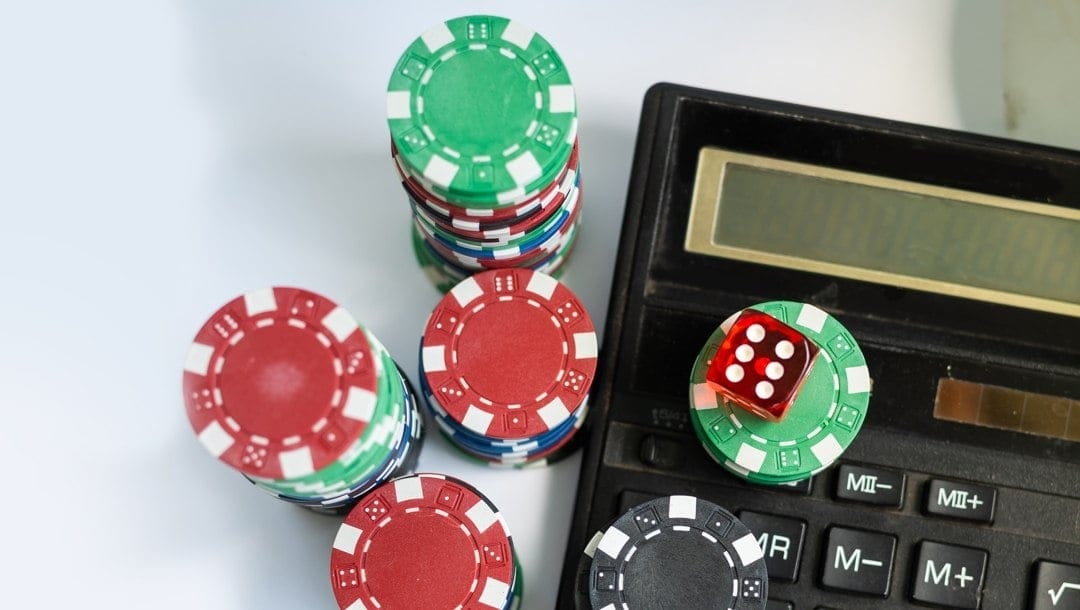Most people know decks of cards contain 52 cards and four different suits. However, there’s a lot more surprising math that you almost certainly aren’t aware of.
Don’t worry, though. You won’t have to play complex math games with playing cards — this blog post will simply share some cool facts. They might not help you to crush online poker tournaments, but knowing this playing card trivia will make you sound like a genius.
For example, did you know that the red and black colors in a deck of cards represent day and night? Knowing that can you guess the significance of the number 52? Keep reading to find out the answer to this and much more.
Playing Card Facts You’ve Never Heard Of
Whether you play baccarat, blackjack, or online poker for fun, the focus is on strategy. Some math may be involved, but the games aren’t about the cards themselves. Because of this, it’s no surprise that most people aren’t aware of these interesting facts.
Card Suits
The four suits used in a standard deck are said to represent the seasons. These are, of course, hearts, spades, clubs, and diamonds. They’re traditionally red or black unless you use a four-color deck to play poker online. Red represents the daytime, while black signifies the night.
Number Per Suit
Each suit has thirteen cards, ranging from ace to king. This is linked to the thirteen lunar cycles experienced each year.
Broadway Cards
A standard deck contains 12 Broadway cards, with four kings, queens, and jacks each. These court cards, or picture cards, represent the 12 months in a year.
Total Number of Cards
Most people would assume that having 52 cards per deck is pretty insignificant. But is it? Well, there are 52 weeks in a year, which probably isn’t a coincidence.
Card Values
What is the total of every card in a deck, where a king is 13 and an ace is one? Were you aware that they all add up to 365? As you will already know, a year contains the same number of days.
The Unbelievable Math in Decks of Cards

Do you remember the last time you shuffled a deck of cards? When you did, it was almost certainly a unique arrangement, never seen before and never to be seen again. If you tried to reshuffle the same setup, you’d likely never succeed in a hundred lifetimes.
That’s right. If you shuffle a deck of cards seven times using a casino-style riffle, it’s virtually guaranteed to be different from any other combination in history. It’s hard to believe, but the math checks out. The total number of permutations contains 68 digits, a figure too large to truly comprehend.
That’s amazing enough, but staggeringly, there are more possible ways to shuffle a deck than the number of atoms on planet Earth.
If you need a little perspective, think about this. Imagine all the card games that have ever been played — all of those Vegas poker hands, plus every blackjack or baccarat game. It’s incredibly unlikely that any one of those shuffles has ever produced the same arrangement.
This is why poker and online casino games can’t be easily solved like checkers or tic-tac-toe. There are simply far too many combinations and variables to account for.
Can You Use Deck Math to Your Advantage?
This is a definite yes. Especially in poker, knowing some basic math principles can massively improve your edge. Knowing there are 12 Broadway cards and 12 months in a year doesn’t help much. This kind of math is much more strategic.
Imagine you’re at the poker table, and the dealer slides two cards to you. Wouldn’t you like to know your chances of making a strong hand? Many beginners think this kind of math is complicated, but it’s very simple with some practice.
Once you know your “outs” — poker parlance for the cards you want to hit — you can use basic math to discover the probability of hitting them on the flop.
The Rule of Two and Four
If you want to see a specific card on the flop, turn, or river, it’s good to know the odds. Whenever you play hold’em, use this simple rule to find the chance of hitting your cards.
Say you have ace-king in your hand and want to make a pair, but you didn’t make one on the flop. What are the chances of seeing an ace or a king on the turn and river? Count your outs first, which — in this case — are the remaining aces and kings. That’s a total of six cards: three aces and three kings.
Next, you can apply the rule of two and four to reveal your odds.
- Multiply your outs by two to find the probability of hitting on the turn or river.
- Multiply your outs by four to find the probability of hitting on the turn and river.
Who Created Decks of Cards?

It’s easy to discover the useful math poker players use today. However, much less is known about the person behind the math of card decks.
Looking for the early history of cards is like trying to find out which books were in the Library of Alexandria. Even though cards were often luxury items in early human history, they weren’t built to withstand the test of time. As such, finding evidence of cards earlier than 1000 C.E. during the Middle Ages is tough.
The first deck of cards probably weren’t cards at all but a printed set of dominoes from China. Most scholars agree that the evolution of playing cards started in this part of the world around the ninth century. Specifically, it would have been around 618–907 C.E. during the Tang Dynasty. This era is regarded as a golden period for the arts, culture, and international trading.
Some early Chinese sets used four suits, just like the Egyptian designs that came to Europe in the 14th century. The first European mention of cards is in Switzerland, where a ban was issued by local authorities in 1367.
Historians know where cards came from, but the exact motivations behind the early suits, numbers, and everything else will probably remain a mystery.
Math Class is Finished
Now that you’ve learned some interesting mathematical principles behind cards, it’s time to play your favorite games. You can do so right away when you register at BetMGM, where you’ll also collect a bankroll-boosting bonus to kick off the action.










